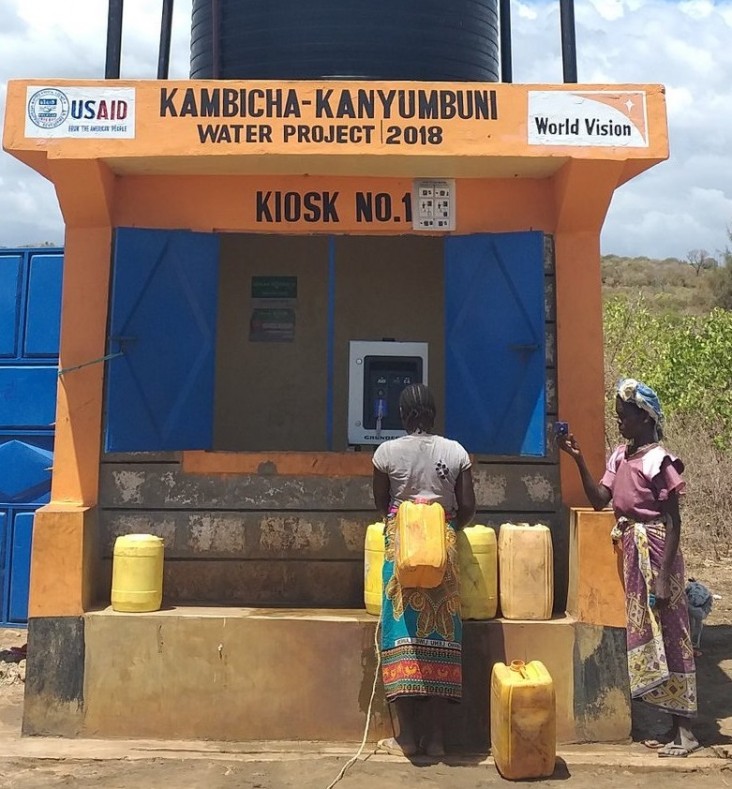Speeches Shim

In Kenya’s Arid and Semi-Arid Lands, recurrent drought makes access to water—for humans, agriculture, and livestock—an ongoing challenge. Many communities rely on ground water accessed through boreholes or wells, as well as surface water supply structures, such as small dams and water pans. During drought, surface water supplies are not adequately replenished and the pumps that operate boreholes and wells tend to break from overuse and poor management. Repair of pumps can be costly and, particularly in hard-to-reach rural areas, critically delayed. When water is scarce, communities may utilize water unsafe for consumption, face purchasing water at inflated prices at a time when household income is already strained, or walk long distances to reach water, disrupting other critical activities.
To address these challenges, USAID Office of U.S. Foreign Disaster Assistance (USAID/OFDA) partner World Vision constructs automated water kiosks—or “Water ATMs”—with technical support from private pump solutions company Grundfos. Using solar pumps, which are more durable and less expensive to operate than diesel-powered pumps, ground water from water supply systems moves to elevated storage tanks where it is chlorinated and then flows by gravity to automated water kiosks. Community members can then access potable water at any time of day at the kiosks using a payment card chargeable through Kenya’s widely used mobile-based cash transfer service, M-Pesa. The Grundfos-supported payment system tracks water usage to quickly identify possible issues for repair. Communities pay a low set price safeguarded from seasonal fluctuations. The payments support ongoing maintenance and repairs overseen by a local water committee. The result is affordable and sustainable access to safe drinking water for communities in drought-prone areas. In 2018, World Vision—with USAID/OFDA support—extended three main water pipelines in Kenya’s Kilifi County, and constructed and connected 19 automated water kiosks to the pipelines that now bring safe drinking water to more than 12,800 people. Across Kenya, World Vision has installed 250 solar pumps and constructed nearly 80 automated water kiosks.

Comment
Make a general inquiry or suggest an improvement.